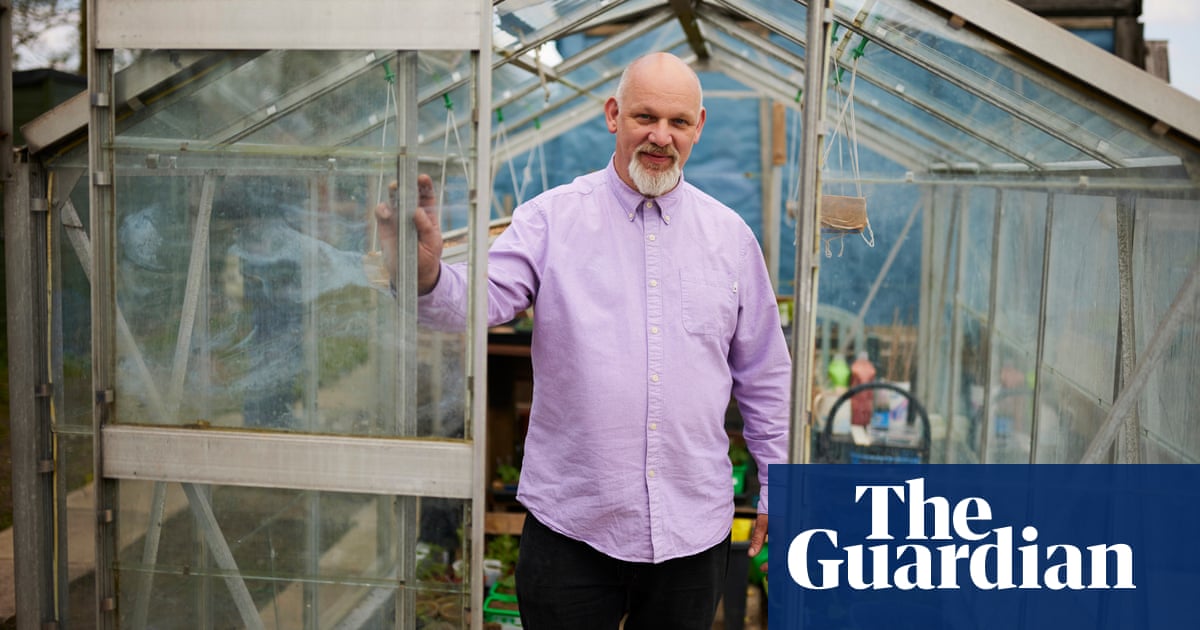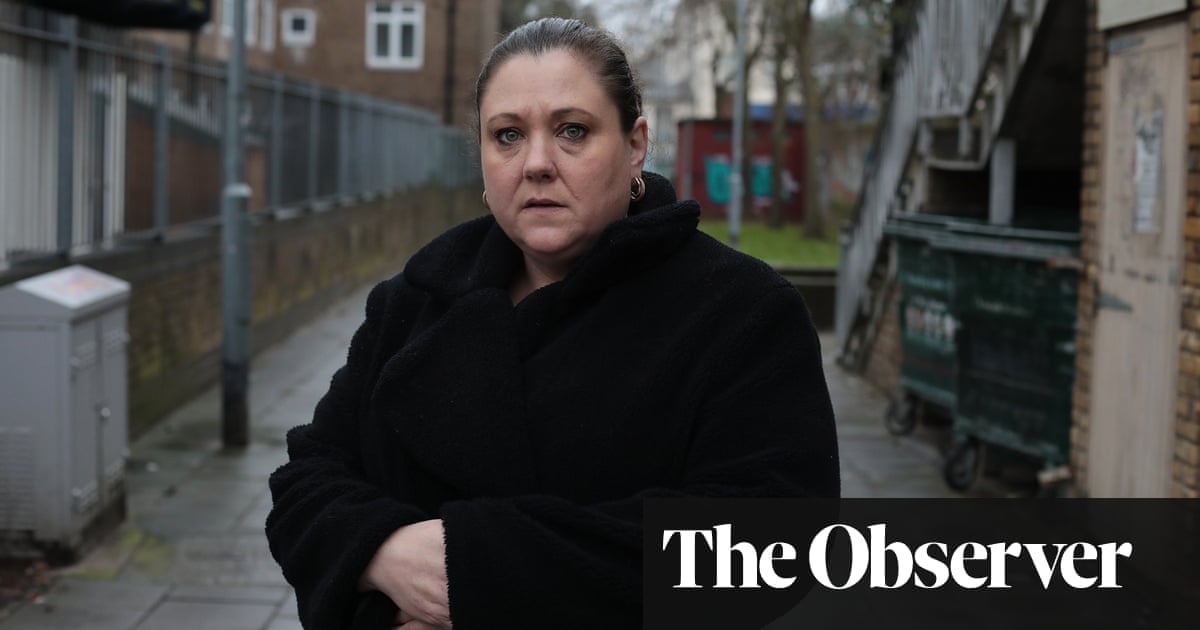
The list of what Paul Cooper grows in his allotment in St Helens, Merseyside, could fill a greengrocer’s stock list. There is oriental mustard and rocket, peas, broad beans and jerusalem artichokes. The early season potatoes are in the ground; the strawberry plants are budding, and a mature apple tree that predates the allotment’s creation in 1969 will be harvested later this year.
But Cooper, 51, worries his lifelong passion is under threat. He is one of many facing huge increases in allotment rents despite a cost of living crisis that has squeezed Britons’ budgets. Some have seen rent demands approaching 500%, prompting petitions to reverse the decisions and leading some to consider abandoning their plots.
Before Cooper got his plot in 2008, he helped his 84-year-old mother with her allotment nearby. Now he visits his plot up to six times a week not only to grow but to socialise, with balmy summer barbecues bringing together a community that is a mix of genders and ages.
Cooper says authorities are underestimating the human cost of rent demands – which may put pressure on mental health services – and the community value of producing locally grown food.
“Councillors seem to fail to see that, for the vast majority of tenants, allotment gardening is their recreational activity,” he says. “It helps to alleviate social isolation and has health and wellbeing benefits beside helping many to mitigate the affects of the current cost of living crisis on their household budgets.”
There are an estimated 330,000 allotment plots in the UK, most of them council-owned. In 2021, the average wait for an allotment was two years and eight months, with a waiting list of about 100,000 people. This level of demand may explain councils’ willingness to risk gardeners giving up their plots, as green-fingered hopefuls wait in the wings.
In Glasgow, the annual rent for a 250 sq metre (2,690 sq ft) plot is to surge by almost 500% from £34.50 in 2023-24 to £170 in 2024-25. The rate for those eligible for concessions will go up by 456%, from £25 to £114.
Jenny Reeves, who chairs the Glasgow allotment forum, says there has been little explanation from the council for its decision and argues that the allotments “further social inclusion”.
“We have a multicultural population exchanging food ideas,” she says. “They [the council] say it makes it cost neutral but in the longer term for someone stuck in a flat on their own who gives up an allotment … the cost [of them losing this space] in the longer term is much higher than the benefit of the small amount of money they [the council] will be saving.”
Glasgow city council says it needs to make £50m in savings this year. “Extremely tough decisions have had to be made and a static approach to allotment fees is simply no longer sustainable,” a spokeswoman says.
In St Helens, new allotment holders will be charged a £100 setup fee – this was previously £30. The lease for individual plots in 2023-24 will increase by 50%, from 30p to 45p a sq metre.
Cooper, whose plot is just over 100 sq metres, says the changes are “disheartening”. He says if you price out people, then owning an allotment will become an “elite pastime”.
In March, the council stripped 50% concessions from those on certain benefits and people over the age of 60.
Cooper says the higher costs come on top of spending on seeds, compost, tools and equipment. He has been contacted by people who are considering “packing it in”.
“A former soldier who suffers from post-traumatic stress disorder found solace in his allotment and has decided to give up his tenancy because he will no longer be able to afford it,” says Cooper, adding that, for many, growing produce “beats staying in and looking at four walls”.
St Helens borough council says central government cuts have forced it to evaluate costs, and that the management of allotments costs £50,000 a year. Increasing the charges was a “difficult decision”, the council says, but that “the average increase equates to 72p per week or less than £40 per year”.
But some allotment holders have pressured councils into U-turns. In Stirling, Scotland, more than 100 people signed a petition to halt a big increase in fees at the Bridge of Allan allotments. The council had originally planned to increase rents for 2023-24 by 300%, stating that this was to cover costs, rather than profit, and that its annual budget was “painful to set”. After a challenge by allotment holders, the council last month cancelled the proposed increases.
Welwyn Hatfield borough council in Hertfordshire recently tried to increase plot costs by 200%. However, such was the clamour of local protests that the council reversed its decision.
Carol Kirk, who has had a plot in Stirling for 20 years, says the “colossal increase” would have put too much pressure on budgets. “Some allotment sites are very middle class and people could afford to pay more, but the changes would have priced a lot of people out of having allotments,” she says.











